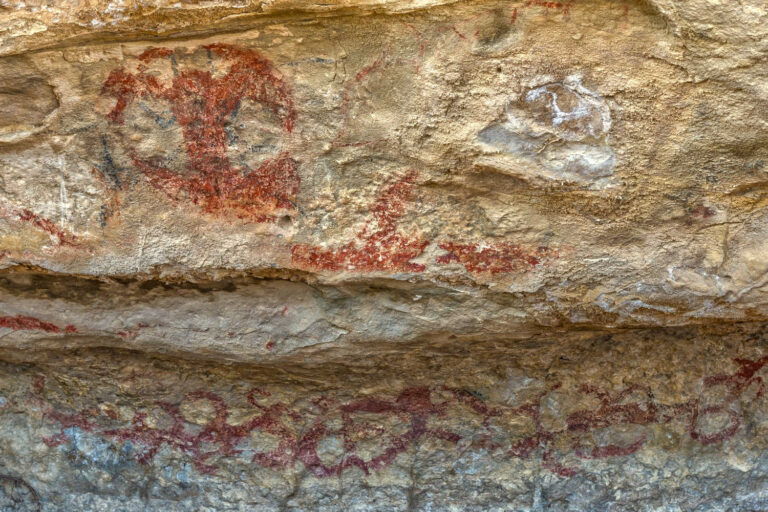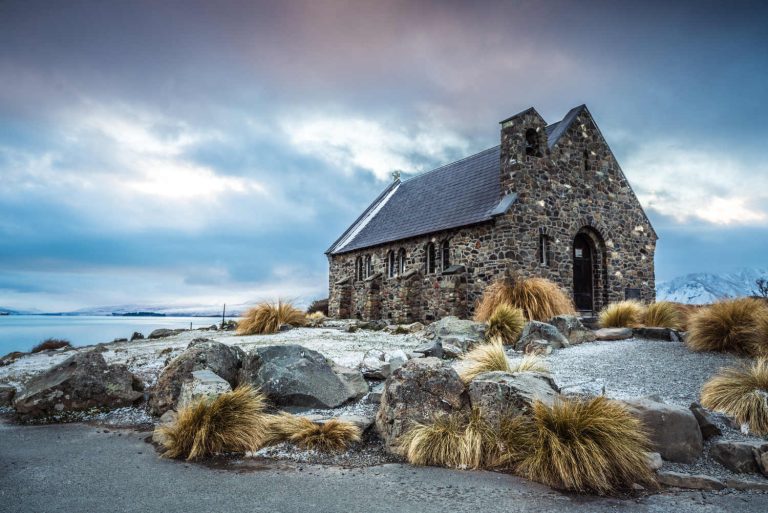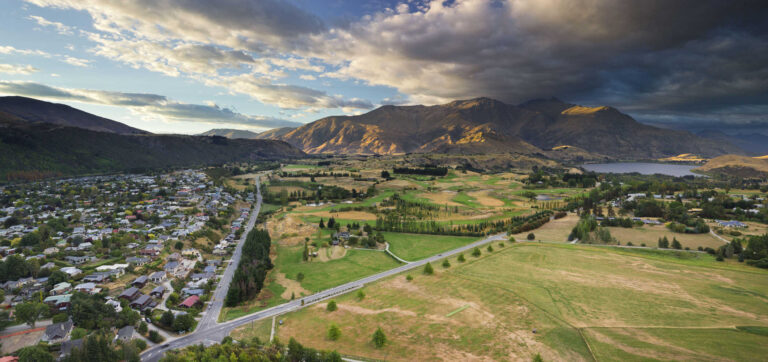Cromwell’s historic district at the junction of the Kawarau and Clutha Rivers was swallowed by the lake in the late 1980’s due to the construction of the Clyde Dam. The heritage precinct was carefully removed and reimaged in its current location by the newly created Lake Dunstan foreshore. Today visitors continue to stroll through a heritage precinct. Buildings from 1860 to 1900 reflect the town’s gold mining and pioneering past including the London House Stables, Captain Barry’s cottage, the Cobb & Co Store, Belfast Store and Jolly’s Seed & Grain Store.
Gravel soils, river valleys and warm summers underpin a successful horticulture / vintner industry fostering a farm to gate culinary experience for visitors. Fresh fruit, single origin estate wines and boutique artisan goods have become part of the gold fields’ magic experience. Best time to visit Cromwell is summer for fruit extravagenca, winter for skiing, and spring / autumn for walks, cycle adventures and heritage exploration. Cromwell has a semi-arid climate with little rainfall occurring between December to March.
CROMWELL’S HIGHLIGHTS
- Glorious semi-arid landscape interspersed with gold mining historic relics
- Summer fruit bounty
- Boutique vineyards
- Walking and cycling trails
-
HIGHLANDS MUSUEM
Invercargill has motor vehicles sorted with the opportunity to dig holes with a very large piece of machinery yet Cromwell should be on your radar with a glorious sports car museum, a homage to all things petrol driven. The Highlands Classic Sports Car Museum gleaming machines range from Michael Schumacher’s Benetton Formula One car to the Aston Martin Vulcan, the ultimate in motoring luxury. Go karting, Radical U Drive and a funky vehicle sculpture park is entertainment everyone can participate in. The cafe with its sweeping windows, overlooking the lap tracks with the adrenaline infused puff of heated oil from revving cars is a one of a kind foodie experience. Don’t forget to view an authentic American sheriff’s patrol car for a perfect selfie moment.
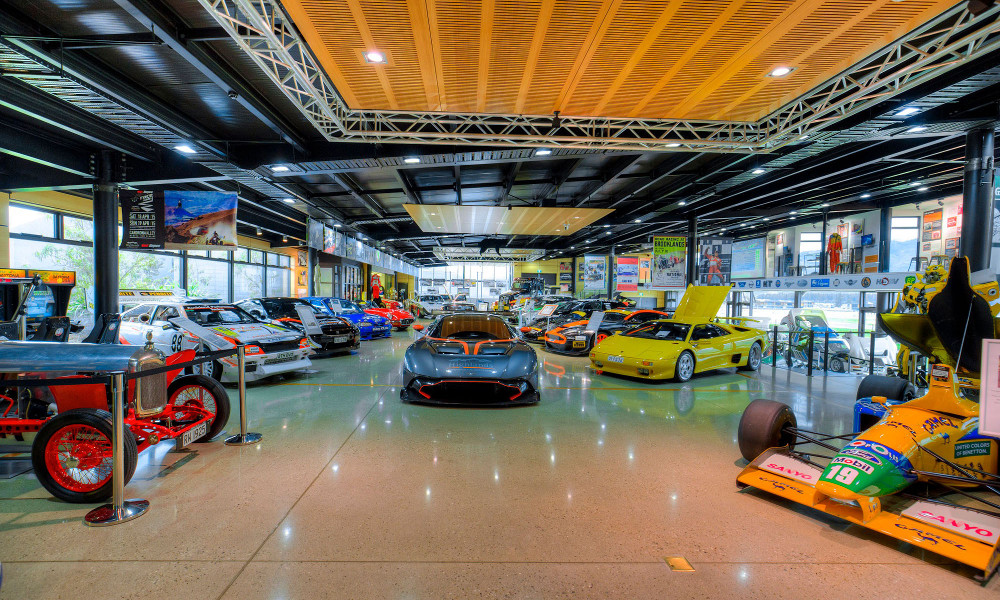
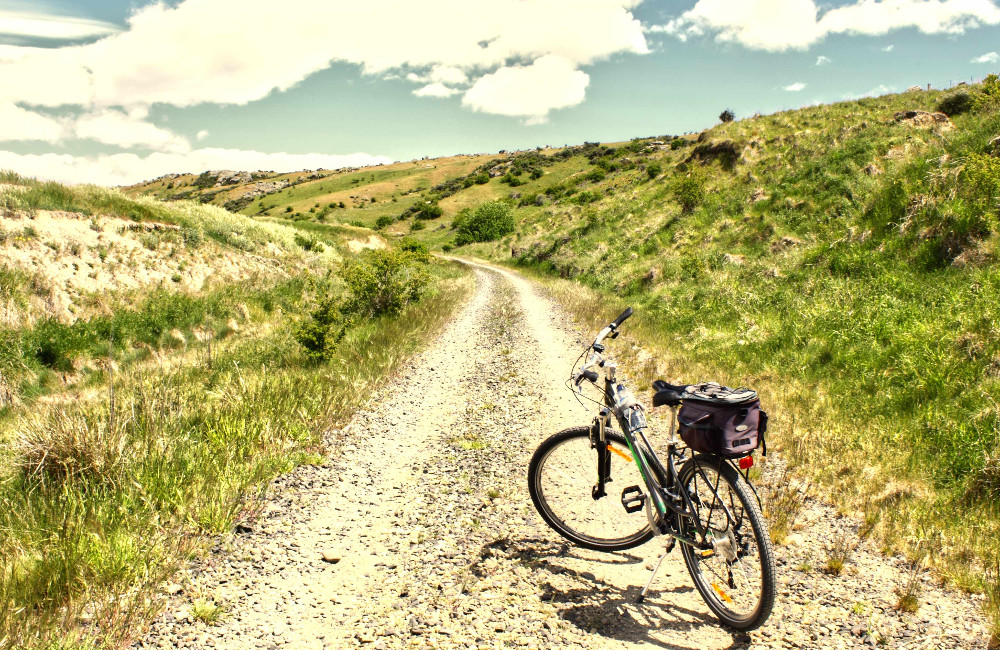
-
CYCLING TRAILS GALORE
Remember to stock your backpack with deli goodies and water for an impromptu picnic among the folded hills of Otago. Lake Dunstan’s short Cromwell to Bannockburn Lakeside is a flat easy ride. Compounded with the wide open spaces framed by rock scattered hills, cyclists are treated to scenic Lake Dunstan, and Kawarau River. The trail finishes at Bannockburn Bridge where you can treat yourself with a pub meal.
-
LET’S STRIKE FOR GOLD
Pan for Gold at the Goldfields Mining Centre. There are elements of a cliched visitor attraction yet the charm of Goldfields is the ignition of the gold fever flame. Panning for gold is gravel swirling in the concave pan, water sluicing unwanted debris, eyes focused and the reward of the elusive flakes of gold glimmering in the pan. Get your gold fever sparking and, for a moment understand why people abandoned farms to go gold mining. You get to walk among nineteenth century gold mining machinery and with the awesome Kawarau River popping into view during the self-guided walk. Kawarau Jet Boat service operates from the Gold Mining Centre.
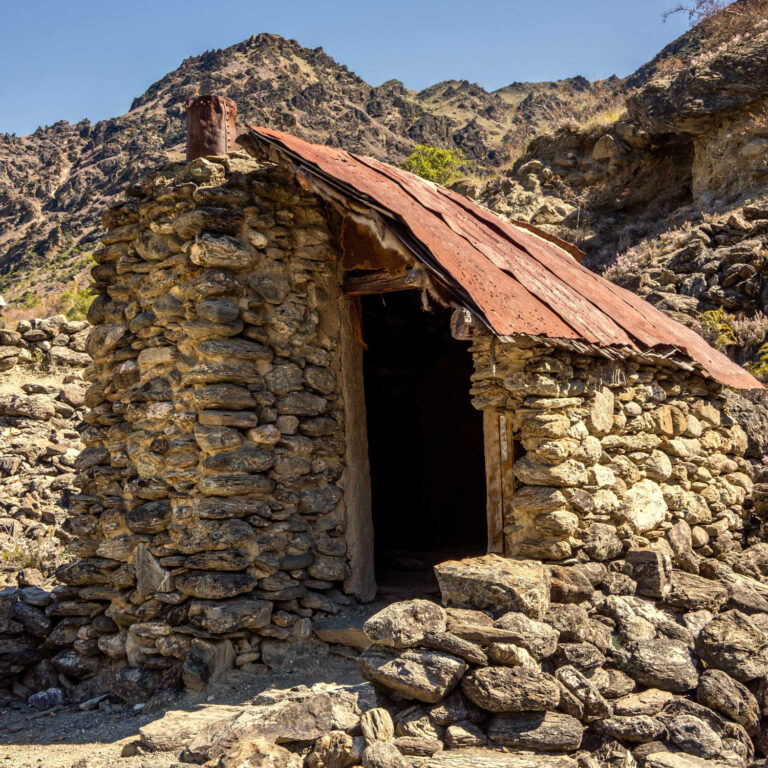 19th century abandoned miners stone cottage Otago Gold Fields
19th century abandoned miners stone cottage Otago Gold Fields
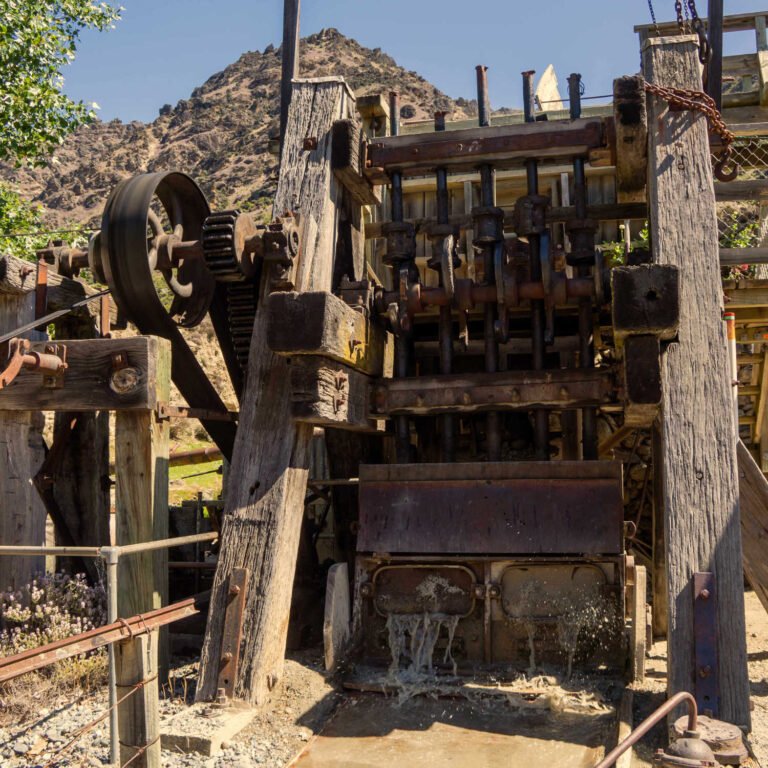 GoldFields Mining Centre heritage stamper battery
GoldFields Mining Centre heritage stamper battery
-
WALKS
Check out the Dunstan Lakeside walks for flat and easy strolls alongside a picture perfect created lake. Or climb the Old Reservoir Track zigzagging up to the former water reservoir above Lake Dunstan. The evocative name Deadman’s Point Bridge is a favourite for photographers. Then there are Quartz-Reef Tailings with abandoned gold mining machinery and buildings.
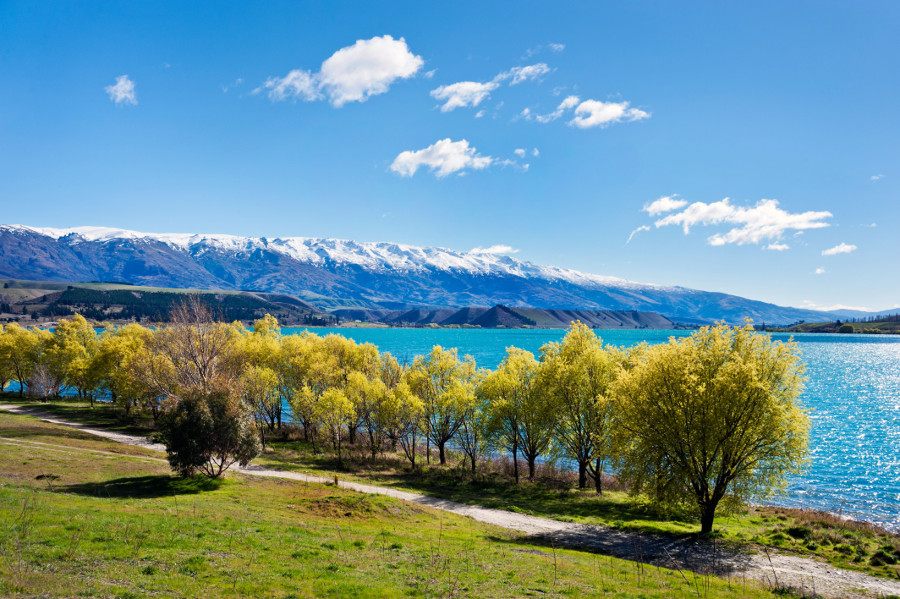
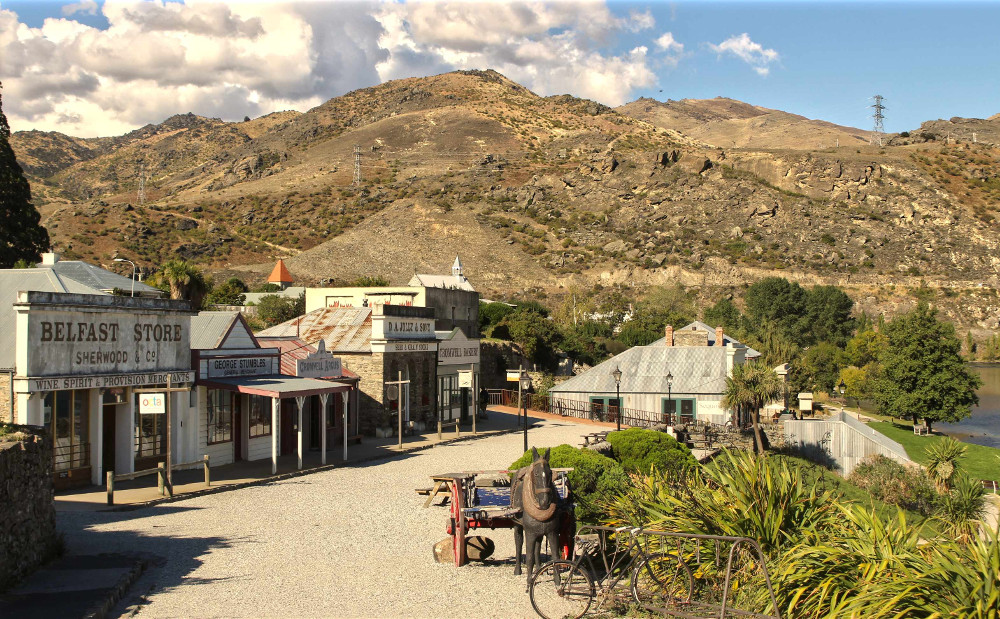
-
OTAGO RAIL TRAIL
Brought a bike with you, hired wheels to explore the stunning austere landscapes of Southland. Cyclists will follow heritage rail trails, the footsteps of gold miners and newly constructed shared walking / cycling trails. The Otago Rail Trail is a multiple day cycling adventure passing through the district with Cromwell being a favourite stop for cyclists.
-
GOLD MINING HERITAGE TRAILS
BANNOCKBURN SLUICINGS SCENIC RESERVE. It is a great photo moment with elevated views of vineyards. And you obtain a sense of history with physical gold mining scars reminding visitors of the sheer destructive force of millions of litres of water forcibly washing entire hillsides away. There’s a loop track that passes abandoned stone buildings. BENDIGO HISTORIC RESERVE has abandoned stone cottages in a desolate landscape where winter’s piercing cold would have made gold mining an exercise in endurance. There you’ll find the ruins of two settlements — Logantown and Welshtown.
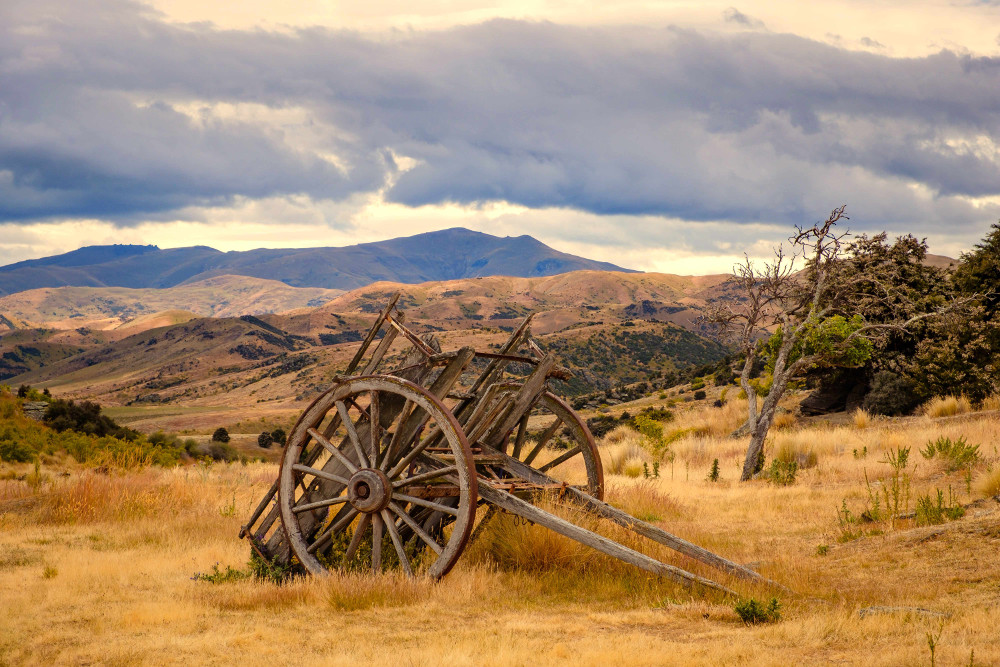
-
CROMWELL CHAFER BEETLE
Nature doesn’t miss out in things to do in Cromwell with the beetle being the poster boy / girl for conservation. A flightless beetle has its own insect conservation reserve, a 81 hectare unassuming patch of native grass on the outskirts of Cromwell. The endangered beetle has similar status as the feathered beauty, the Kākāpō. The beetle is tiny (15mm) and lives mostly underground meaning you are effectively visiting a patch of grass. Although an inconspicuous beetle, the Cromwell Chafer is extraordinary in that this is the only place in the world the beetle has been found. At night the beetle feeds on native cushion plants, herbs and grasses.

Will visitors see any beetles? Very unlikely. Don’t let that stop you visiting a patch of grass though.
“Cromwell Chafer Beetle is like the Maui’s dolphin of invertebrates. It’s nationally critical and can only be found in one place in the world – the Cromwell Chafer Beetle Nature Reserve (between Cromwell and Bannockburn, in Central Otago). The 81 hectare reserve was established in 1979 and is the only reserve in the world created solely for the protection of an invertebrate.”
From Saving the Cromwell chafer beetle Conservation blog.
-
BIRD WATCHERS REJOICE
Otago Regional Council manages a significant wetland Bendigo Wetlands, located at the head of Lake Dunstan. Over 249 hectares of wetlands are home to the endangered native crested grebe, as well as other waterfowl and native fish. The wetlands is the habitat for threatened swamp bird Crested Grebe (Podiceps cristatus).
Native fish, such as longfin eels and bullies can be glimpsed in the shallow waters. The wetlands is an important feeding and breeding sites for waterfowl such as Paradise Shelduck (Tadorna variegata), Mallard (Anas platyrhynchos), Black Swan (Cygnus atratus), New Zealand Scaup (Aythya novaeseelandiae), Canada Goose (Branta canadensis), as well as for Pied Stilt (Himantopus himantopus) and other waders. The slow filling of the lake contributes to the wetlands continued wellbeing. The wetland is also an important site for seasonal game hunting. Check with relevant authorities for season opening / closing and required licences.
Location: West of the intersection of Tarras-Cromwell Road (SH 8) and Loop Road, Crippletown.
NZTM (centre point): E1307710 N5018520
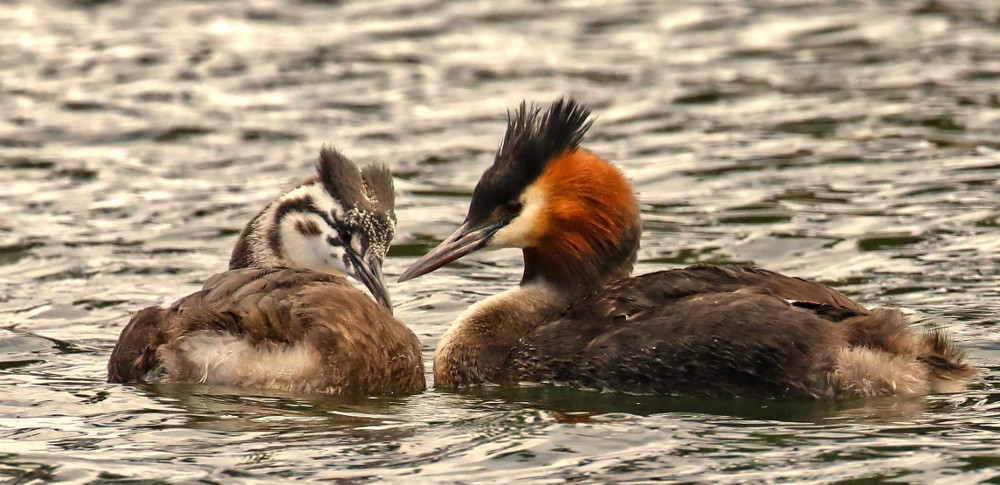
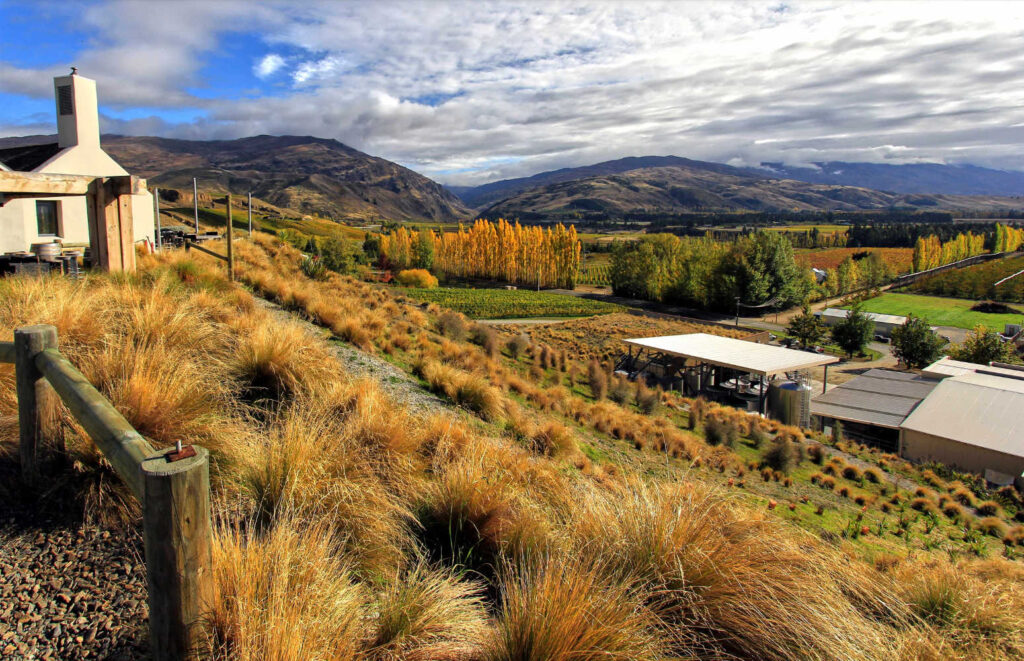
-
VISIT A VINEYARD
Visit a vineyard and sample pinot noir wines. Stunning views of hills, peaks and snow dusted on mountain tops. Plus delicious platters of Central Otago fresh produce, tasting dishes accompanied by single origin estate wine. Gorge on summer sweetness with orchard gate sales tempting drivers to stop and purchase. Peaches, nectarines, apricots, cherries, apples and pearchines. A give away of the importance of commercial orchards is the humongous sculpture of fruit at the town’s main entrance. For fresh fruit devotees December to March is the season to be in town. For instagram feeds the town entrance (state highway 8B) the next big thing is unmissable on the Fruit Bowl Reserve as you enter town.
-
BRUCE JACKSON LOOKOUT
It is a compulsory stop for landscape photography. While it’s simply a big car park with right weather conditions it is a great place to capture the essence of Southland. Sunrise and sunset is an optimal moment with the sweeping vista over Cromwell, and the surrounding mountains backlit by the low light peeking above the hilltops. For an extra special photo location follow the track (on the opposite side of the road) which takes viewers further up the hill behind the lookout.
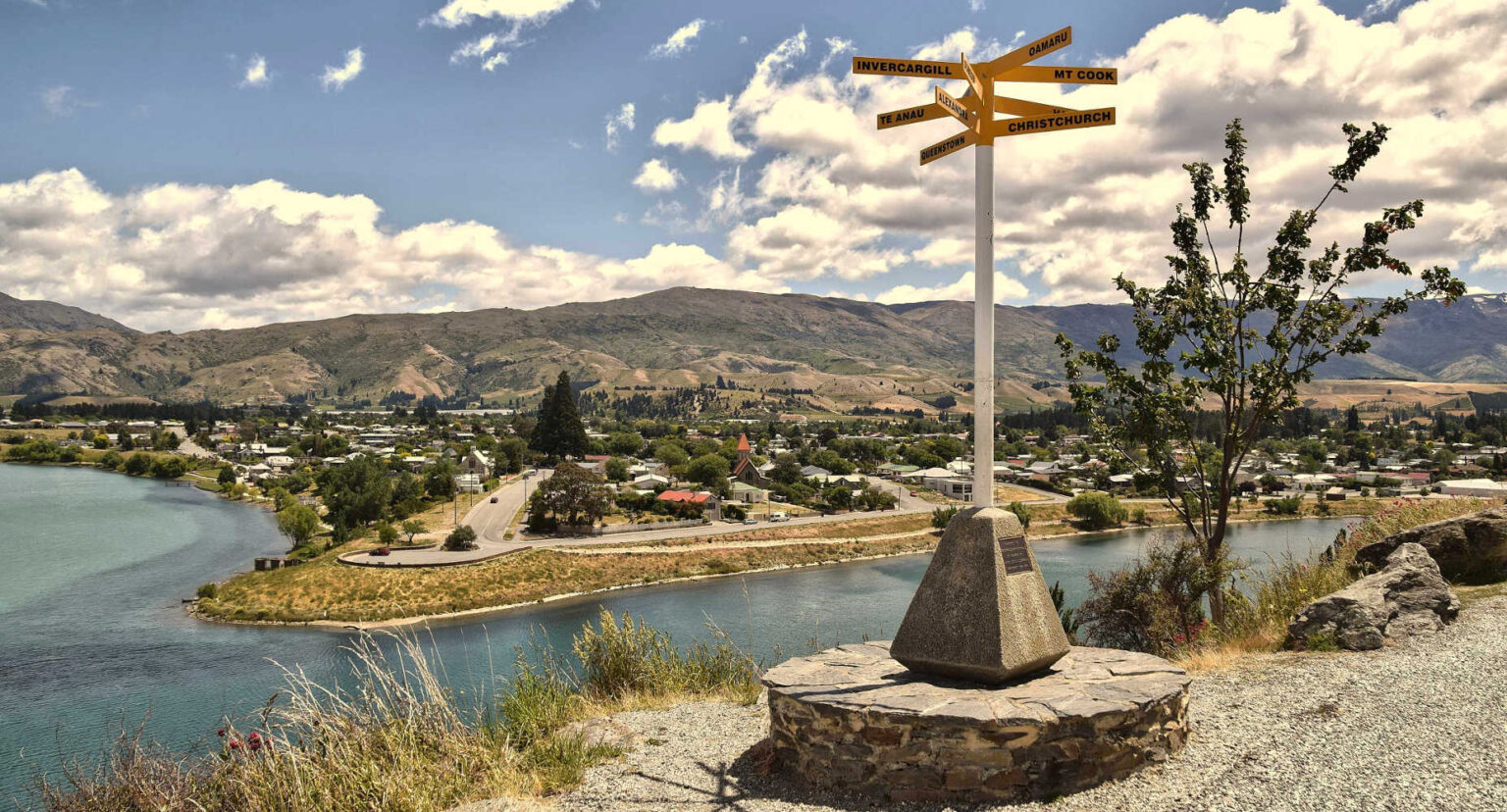
BEST BITS TRAVEL GUIDE


